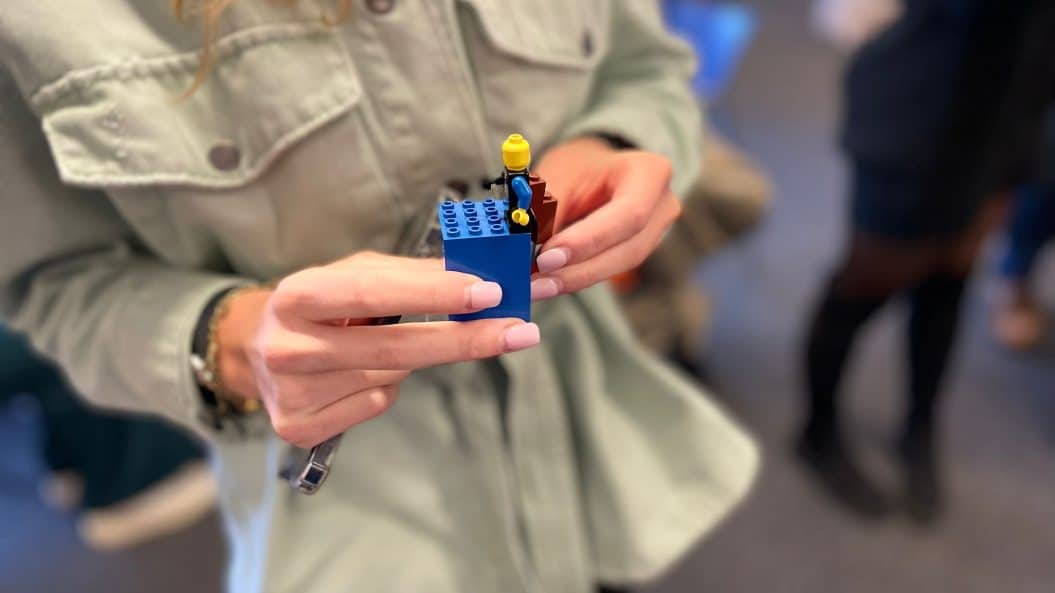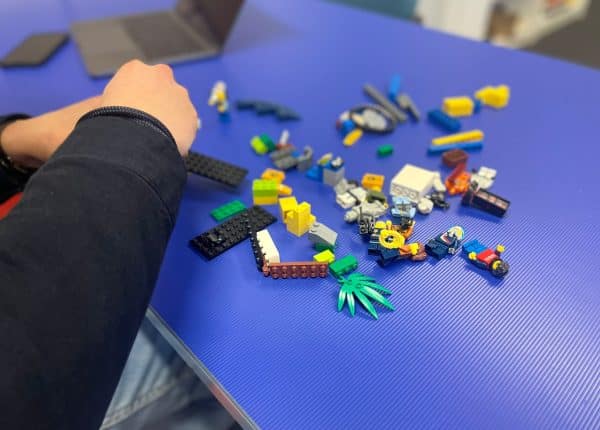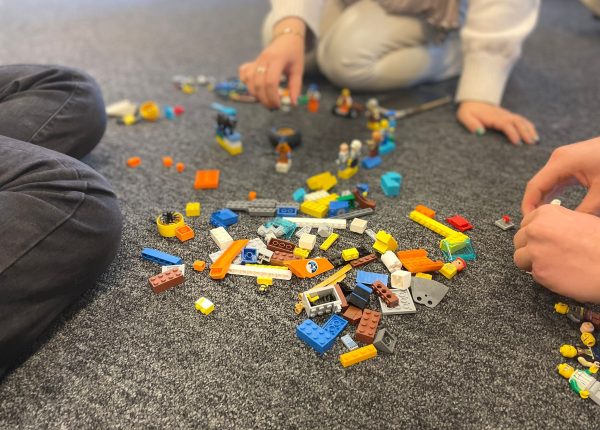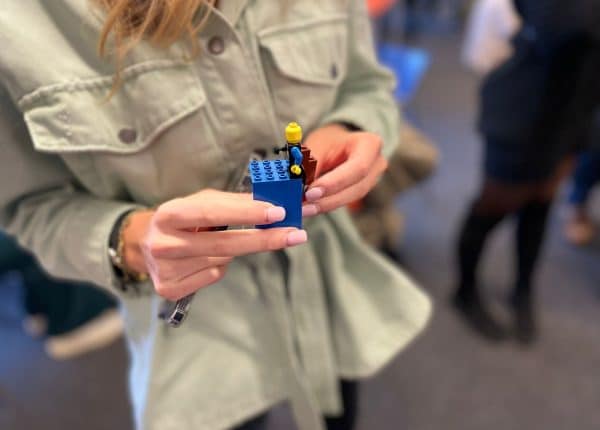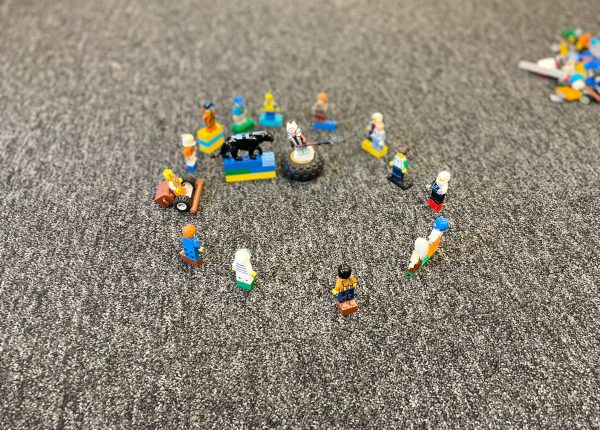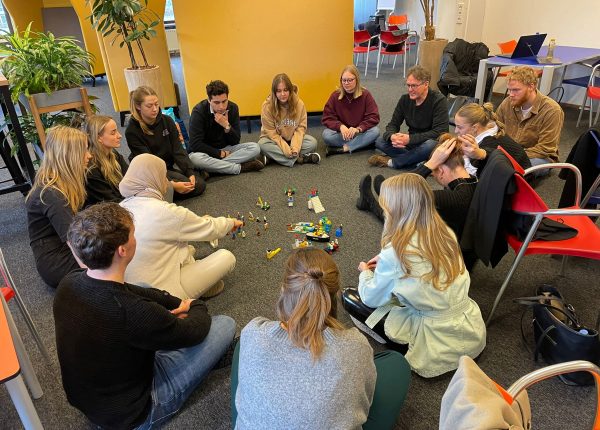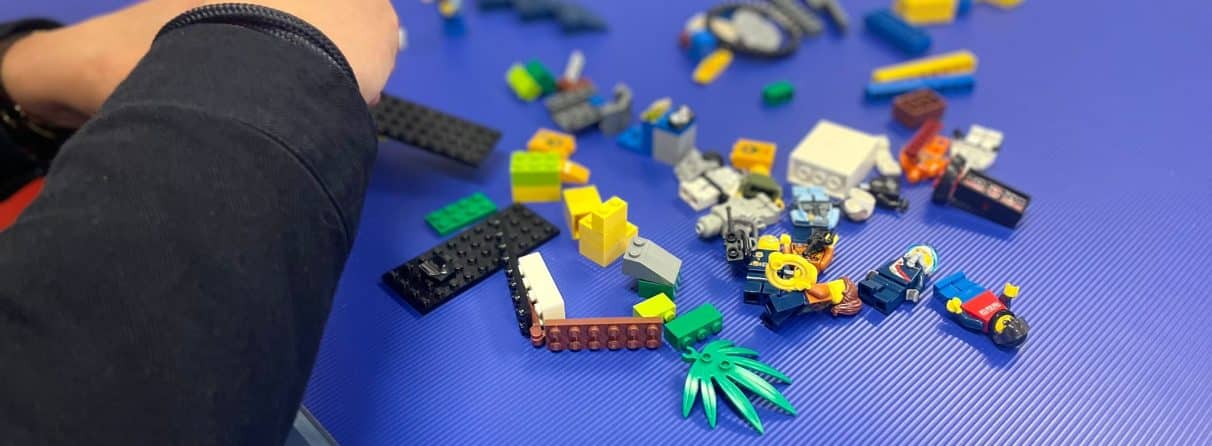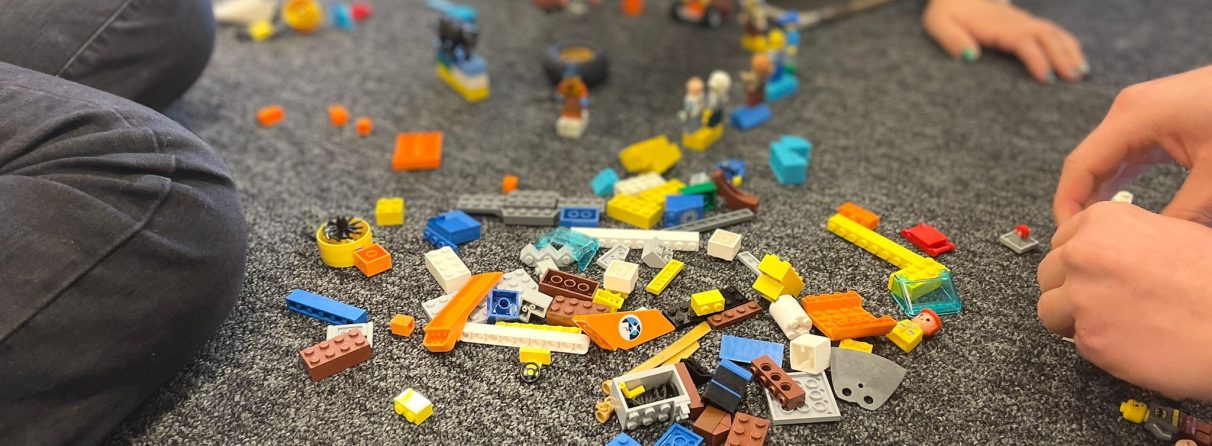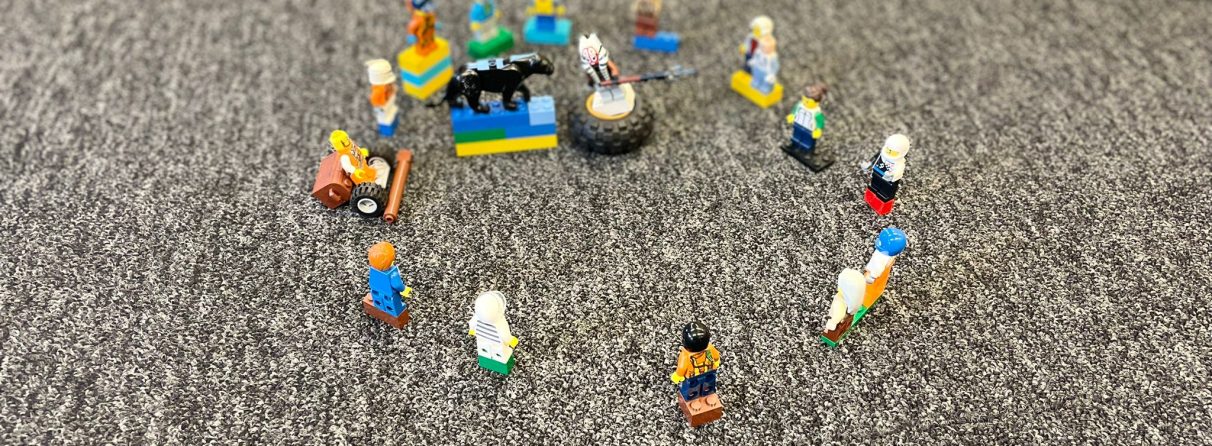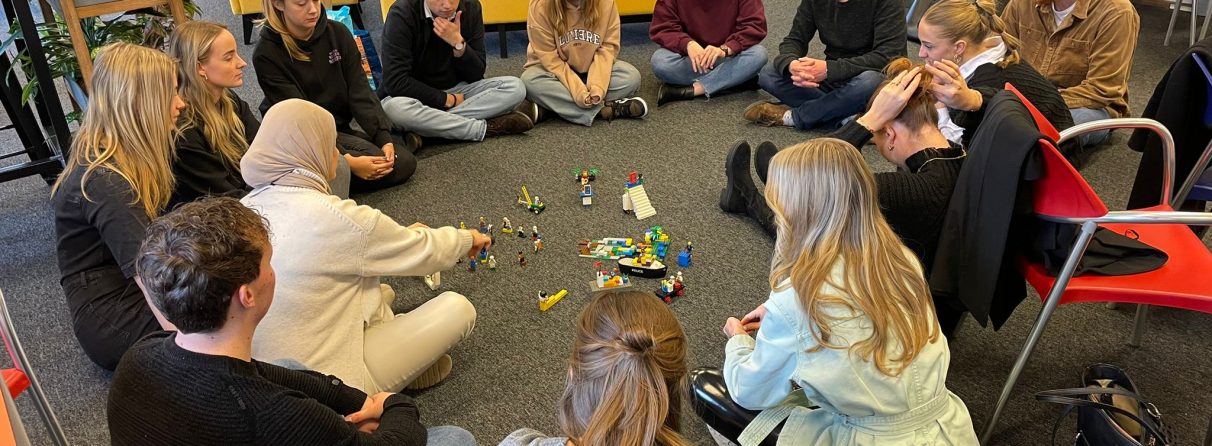Today our students, together with our coaches Tom Parry and Zac Woolfitt, started building with Lego.
As a living lab seeking solutions to wicked problems, we recognize the importance of visualizing stories and ideas in order to better understand complex concepts. Lego is a tool that can help us achieve this goal.
Lego allows us to physically manipulate objects and create tangible representations of abstract ideas. By building with Lego, we can explore different structures and designs, experiment with ideas, and develop our creativity and problem-solving skills. These skills are essential when it comes to tackling wicked problems, as they enable us to think outside the box and come up with innovative solutions.
Moreover, Lego can help us to collaborate and work together as a team. By building with Lego blocks, we can communicate our ideas and work collaboratively to create something tangible that represents our collective vision. This can foster a sense of community and teamwork among us, which is vital when it comes to solving wicked problems.
In addition, Lego can help us to reflect on our learning journey and turn abstract ideas into something more tangible. As we build with Lego, we can reflect on our experiences and explore our ideas in a more concrete way. This can help us to better understand complex concepts and come up with creative solutions to wicked problems. Overall, Lego is a valuable tool for visualizing stories and ideas, developing creativity and problem-solving skills, fostering collaboration and teamwork, and reflecting on our contribution.
These sessions are focused on making connections between seemingly unrelated topics through active listening and collaborative exploration, using Lego as a tool for visualizing stories and ideas can help us achieve our mission and provide a more engaging and innovative learning experience. The benefits of using Lego, including the development of creativity, problem-solving skills, and teamwork, are particularly relevant in our non-traditional approach to education, which values hands-on learning and the synthesis of diverse perspectives in order to address complex problems.
